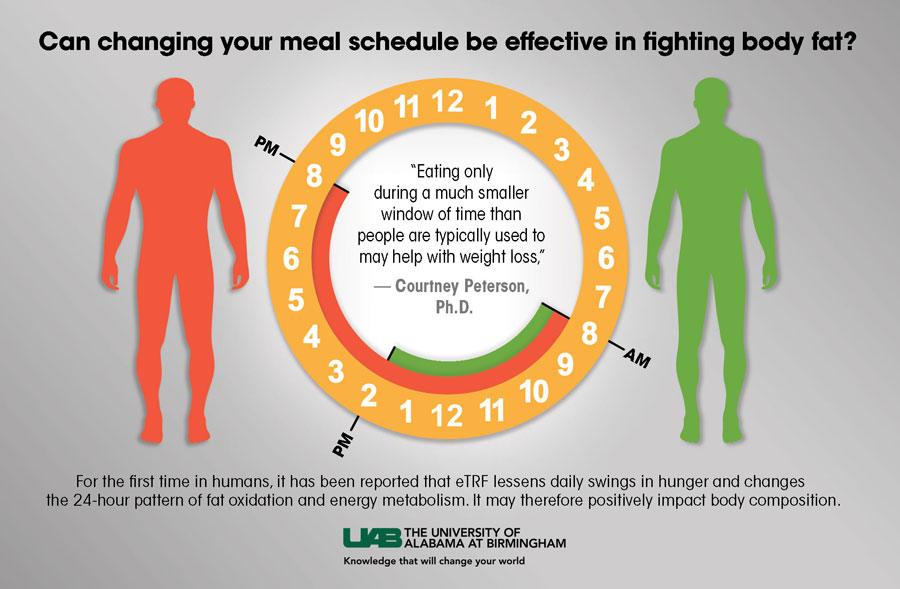
University of Alabama at Birmingham researchers are trying to find out whether changing a person’s eating schedule can help them lose weight and burn fat.
The first human test of early time-restricted feeding, or eTRF, found that this meal-timing strategy reduced swings in hunger and altered fat and carbohydrate burning patterns, which may help with losing weight. With eTRF, people eat their last meal by the mid-afternoon and do not eat again until breakfast the next morning. The findings were unveiled during a presentation at The Obesity Society Annual Meeting at Obesity Week 2016 in New Orleans, Louisiana.
“Eating only during a much smaller window of time than people are typically used to may help with weight loss,” said Courtney Peterson, Ph.D., an associate professor in the Department of Nutrition Sciences at UAB. “We found that eating between 8 a.m. and 2 p.m. followed by an 18-hour daily fast kept appetite levels more even throughout the day, in comparison to eating between 8 a.m. and 8 p.m., which is what the average American does.”
This new research, funded by a TOS Early Career Research Grant awarded in 2014, suggests that eating a very early dinner or even skipping dinner, may have some benefits for losing weight, although further studies need to take place to confirm that theory. Previous animal studies showed that eTRF helped rodents burn more fat.